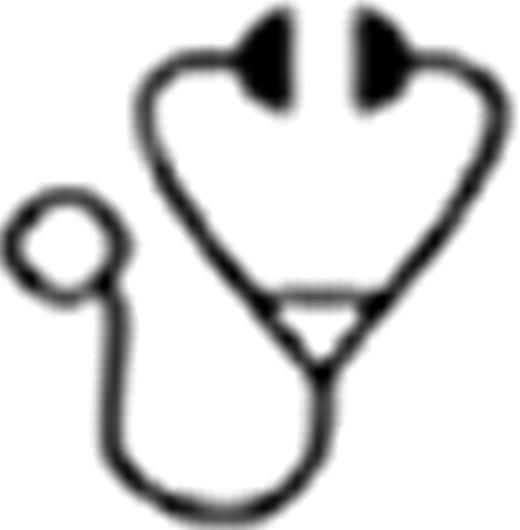Abstract
Antibodies (inhibitors) to exogenously administered factor VIII (FVIII) develop in as many as 30 – 40% of patients with severe hemophilia A. Patients with persistent inhibitors are at increased risk of serious, poorly controlled bleeding which results in significant morbidity and in some cases early death. Rituximab, a chimeric murine/human monoclonal antibody directed against CD20, suppresses circulating and tissue B cells and pre-B cells and has been used in the treatment of a variety of autoimmune and alloimmune disorders. The primary objective of this NHLBI Transfusion Medicine Hemostasis network-sponsored study was to evaluate the role of rituximab as an approach to inhibit the production of FVIII antibodies in patients with severe congenital hemophilia A and high titer inhibitors.
This was a prospective, multi-institution, single-arm, open-label Phase II trial. Eligible subjects were males over 18 months of age with severe hemophilia A and a history of an inhibitor ≥5 Bethesda units (BU). Individuals who were HIV positive, undergoing immune tolerance, or receiving immune modulating therapies were excluded. Following a challenge dose of recombinant FVIII (rAHF-PFM) at 50 IU/kg, and evidence of an inhibitor titer ≥ 5 BU at 5 – 14 days after the challenge dose, subjects received rituximab 375 mg/m2 weekly for 4 weeks. Starting two weeks after the fourth rituximab treatment, inhibitor titers were drawn every 4 weeks. A major response was defined as a fall in the inhibitor titer to < 5 BU at any time up to and including week 22, with the titer remaining < 5 BU following re-challenge with FVIII. A minor response was defined as inhibitor falling to < 5 BU at any time up to and including week 22, with the anamnestic peak following re-challenge with FVIII between 5–10 BU and less than 50% of the original anamnestic peak. The null hypothesis was that no more than 5% of subjects treated with rituximab would be major responders.
A total of 23 subjects were enrolled; 21 received the initial FVIII challenge. Of these, 4 subjects did not meet the criteria to receive rituximab treatment, and 1 subject withdrew consent. A total of 16 subjects received at least one dose of rituximab and are included in this analysis. The median age was 14 y (range 4 – 38 y). Three subjects (18.8%) had a major response. If the null hypothesis were true, the probability of 3 or more major responses in 16 subjects would be 0.043, so the null hypothesis was rejected. One subject (6.2%) had a minor response to treatment. All 4 responders and 8 non-responders had a baseline inhibitor titer < 20 BU, resulting in a response rate of 33% in that group vs. 0% in the 4 subjects with a baseline inhibitor titer ≥ 20 BU.
Infusion of rituximab 375 mg/m2 once per week for four weeks was effective in reducing the anamnestic inhibitor response in 25% of severe hemophilia A subjects with inhibitors who were not receiving concurrent immune tolerance therapy. Those who responded tended to have lower baseline inhibitor levels compared to the group that did not meet the criteria for response. This Phase II study, designed as a proof of concept, demonstrated that rituximab may be useful in lowering inhibitor levels and anamnesis in some patients with inhibitors, but that the effect as a solo treatment strategy is modest, and possibly restricted to patients with inhibitor titers under 20 BU. Further studies are indicated to determine the role of rituximab as an adjunctive therapy in immune tolerization strategies.
The authors acknowledge the support of Genentech for the provision of rituximab and partial financial support for the study. The authors also acknowledge Baxter Healthcare Corporation for donating the recombinant FVIII used in the trial.
Leissinger:Baxter: Honoraria, Membership on an entity's Board of Directors or advisory committees, Research Funding. Off Label Use: Rituximab, a drug approved for use in treating lymphoma, was studied for its efficacy in suppressing inhibitors against factor VIII in patients with hemophilia and high titer inhibitors. Kruse-Jarres:Baxter: Consultancy, Honoraria; Bayer:; Griforls: Consultancy, Honoraria; Inspiration: Consultancy, Honoraria; NovoNordisk: Consultancy, Honoraria. Konkle:Baxter Corporation: Consultancy, Research Funding; Bayer Corp: Consultancy; Inspiration Biopharmaceuticals: Research Funding; CSL Behring: Consultancy, Membership on an entity's Board of Directors or advisory committees. Neufeld:Genentech: Research Funding; Baxter: Research Funding; Bayer: Research Funding. Bennett:Biogen IDEC: Honoraria. Valentino:Baxter Bioscience, Bayer Healthcare, GTC Biotherapeutics, NovoNordisk, Pfizer, CSL Behring, Inspiration Bioscience, and Biogen: Consultancy, Membership on an entity's Board of Directors or advisory committees, Research Funding.

This icon denotes a clinically relevant abstract
Author notes
Asterisk with author names denotes non-ASH members.

